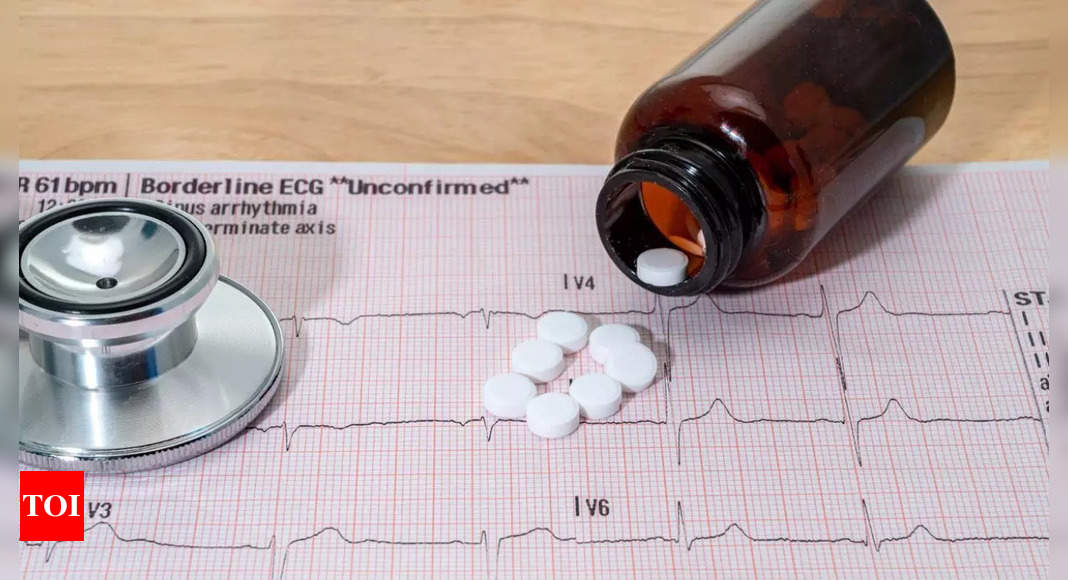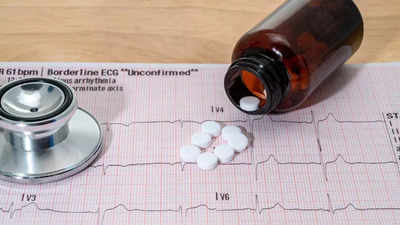
In a groundbreaking discovery, researchers have revealed that a newly approved medication for managing type 2 diabetes and kidney disease can also significantly lower the risk of heart attacks and strokes. According to the American Heart Association, high blood pressure and obesity are major contributors to heart disease and stroke prevalence globally. Additionally, it’s been noted that infection with the Covid-19 virus can double the likelihood of experiencing future heart attacks, strokes, or even premature death.
A recent study published in *The Lancet Diabetes & Endocrinology* has shed light on the positive effects of **sotagliflozin**, a drug authorized for type 2 diabetes and kidney conditions, in diminishing heart attack and stroke risks.
Experts highlight that the drug, marketed as Inpefa, is the first of its kind to offer these remarkable cardiovascular advantages, potentially paving the way for broader adoption among patients.
Sotagliflozin functions as a sodium-glucose cotransporter (SGLT) inhibitor, effectively obstructing the functions of two proteins—SGLT1 and SGLT2—that transport glucose and sodium through cell membranes, thus contributing to better blood sugar regulation.
The study’s researchers expressed, “Sotagliflozin stands out as the first SGLT inhibitor to demonstrate a significant decrease in both myocardial infarction and stroke risks.” They further noted, “The benefits observed regarding stroke are unique to sotagliflozin and have not been replicated in trials of selective SGLT2 inhibitors.”
The research encompassed over 10,000 participants grappling with chronic kidney disease, type 2 diabetes, and added cardiovascular risk factors. Subjects were randomly assigned either sotagliflozin or a placebo, with follow-up periods averaging 16 months.
Participants receiving sotagliflozin experienced a remarkable 23% decrease in the incidence of heart attacks, strokes, and cardiovascular-related fatalities compared to those on the placebo.
Dr. Deepak L. Bhatt, the study’s lead author and director at Mount Sinai Fuster Heart Hospital, stated, “These findings introduce a novel mechanism of action by simultaneously blocking the SGLT1 receptors (located in the kidneys, gut, heart, and brain) and the SGLT2 receptors (found in the kidneys), effectively reducing risks of heart attacks and strokes.” He added, “The benefits reported here are different from those associated with the widely used SGLT2 inhibitors, which target diabetes, heart failure, and kidney disease.”
If successfully implemented, this new treatment option could significantly address multiple chronic health challenges and lower mortality rates.
Dr. Bhatt emphasized, “Healthcare providers now have a promising alternative to mitigate cardiovascular risks such as heart failure, the progression of kidney disease, heart attacks, and strokes in patients with chronic kidney disease, heart failure, type 2 diabetes, and other cardiovascular risk factors.”
Earlier approved to minimize deaths due to cardiovascular issues, reduce hospitalizations for heart failure, and prevent urgent heart failure interventions, the new findings highlight its additional efficacy in decreasing heart attack and stroke occurrences, which may lead to increased utilization in clinical practice.
This breakthrough underscores the immense potential of treatments for diabetes and kidney diseases in combating heart attack and stroke risks. With the rise of cardiovascular diseases, these insights provide renewed hope for preventative measures and improved health outcomes.










